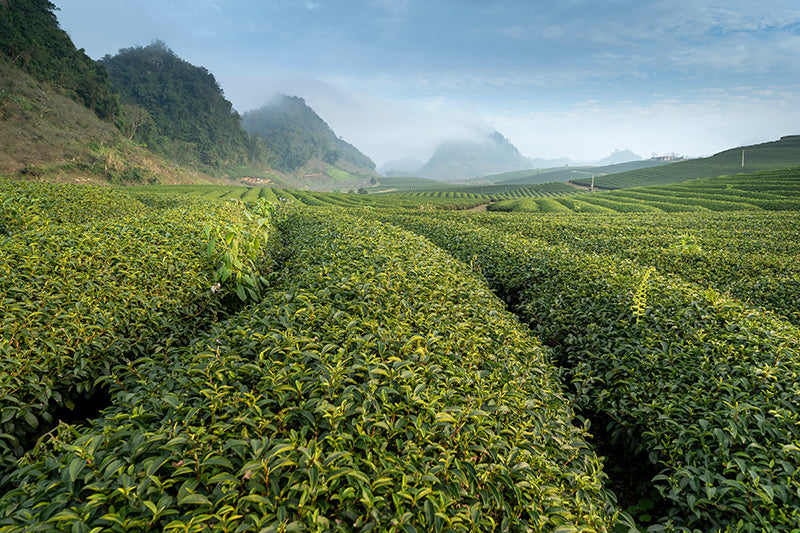Drinking tea* as loose leaves has many inherent benefits for you and the environment. Bagged tea may seem convenient and cheap, but you get more value with loose leaf teas. Tea bags are usually made from leftover tea sediment crushed into a teabag.
We’ve created a list of why you should switch from tea bags to loose leaf teas. The simple switch is transformative.
1. Premium Quality Where You Get More Bang for Your BuckMost supermarket bagged teas are mass-produced and manufactured with dust and fannings, which are sediment and microscopic particles of tea leaves leftover from loose leaf tea processing. Essentially, they're like tea and botanical scraps.
Most bagged teas have a limited flavor expression. Though bagged teas may seem cheaper, you can yield more steeps with one teaspoon of loose leaf tea. You have more control in the outcome of your tea. You can play with its strength by choosing how much tea to steep and extract more or less tea depending on the tea accessories you use and brew time. (Stay tuned on our upcoming article on ways to brew loose leaf teas.)
Because of machine harvesting and processing of tea bags the stems and seeds can slip into the tea bag, causing the tea to sometimes taste prematurely bitter.
2. Flexibility of Flavor & AromaThe surface area of loose tea is greater than that of "tea dust" (fannings) used in bags. The bigger the leaves, the more natural oils you get to extract from them. This provides an incomparable experience of flavor and a comforting aroma!
Loose-leaf provides not only a fuller and deep flavor, but also a variety of characteristics like sweet, flowery, tart, malty, or earthy - a range for every palette. Bagged tea often tastes bitter (off the bat), old, stale, fuzzy, and muddy. Tea bags will only give a splash of color to your cup, but not much else!
3. Tea Diversity
Another issue that teabag users face is the limited tea selection on store shelves. While most stores may appear to have a large tea selection, you'll still find yourself scanning the tea aisle quickly.
White, green, oolong and black teas are the four basic types of tea. Tea has had a long history worldwide. The growing, harvesting and processing methods have evolved over centuries. Within these tea varieties there are hundreds of more varieties to choose from, like different types of green tea - from matcha to hojicha. Most of these varieties are offered as loose leaves, so there's always something fresh to look forward to. Another day, another blend!
4. Better for the Environment
We bet you didn’t know that most tea bags are not biodegradable. Many of them contain a bit of plastic to help keep them sealed. Think of the millions of tiny pieces of plastic adding to the environment’s waste a day. Of those that are biodegradable, only a small percentage of people make the effort to compost them. Loose leaf tea reduces the amount of packaging you use and any used leaves can be placed straight into the compost heap.

5. Health Benefits
Because loose tea leaves are generally bigger, they retain more of the catechin antioxidants and plant polyphenols. What exactly does that imply?
You receive more of the health advantages that tea is known for. Tea has been shown to help prevent cancer, decrease blood pressure and cholesterol, improve weight reduction, and support the immune system. Tea bags just aren’t as potent.
Preparing tea can also be beneficial to your mental health. Make it a part of your daily routine – take a few minutes to scoop the tea, put on the kettle, and watch its leaves unfurl. It’s a calming and meditative process.
The Final Word:
At the end of the day, the types of tea and methods of tea preparation are mostly a personal choice and what is reasonable for your lifestyle. However, when it comes to sizing up flavor, quality, health advantages and experience, loose leaf tea is absolutely the better option.
So there you have it: your five primary reasons to choose loose tea over tea bags. They're not too pricey and won't break your bank. The next time you're dipping a bag, remember what you've just read and go the extra mile to enjoy the true side of tea!
*When referring to the term "tea" in this article, we're talking about the specific plant species Camellia Sinensis.
